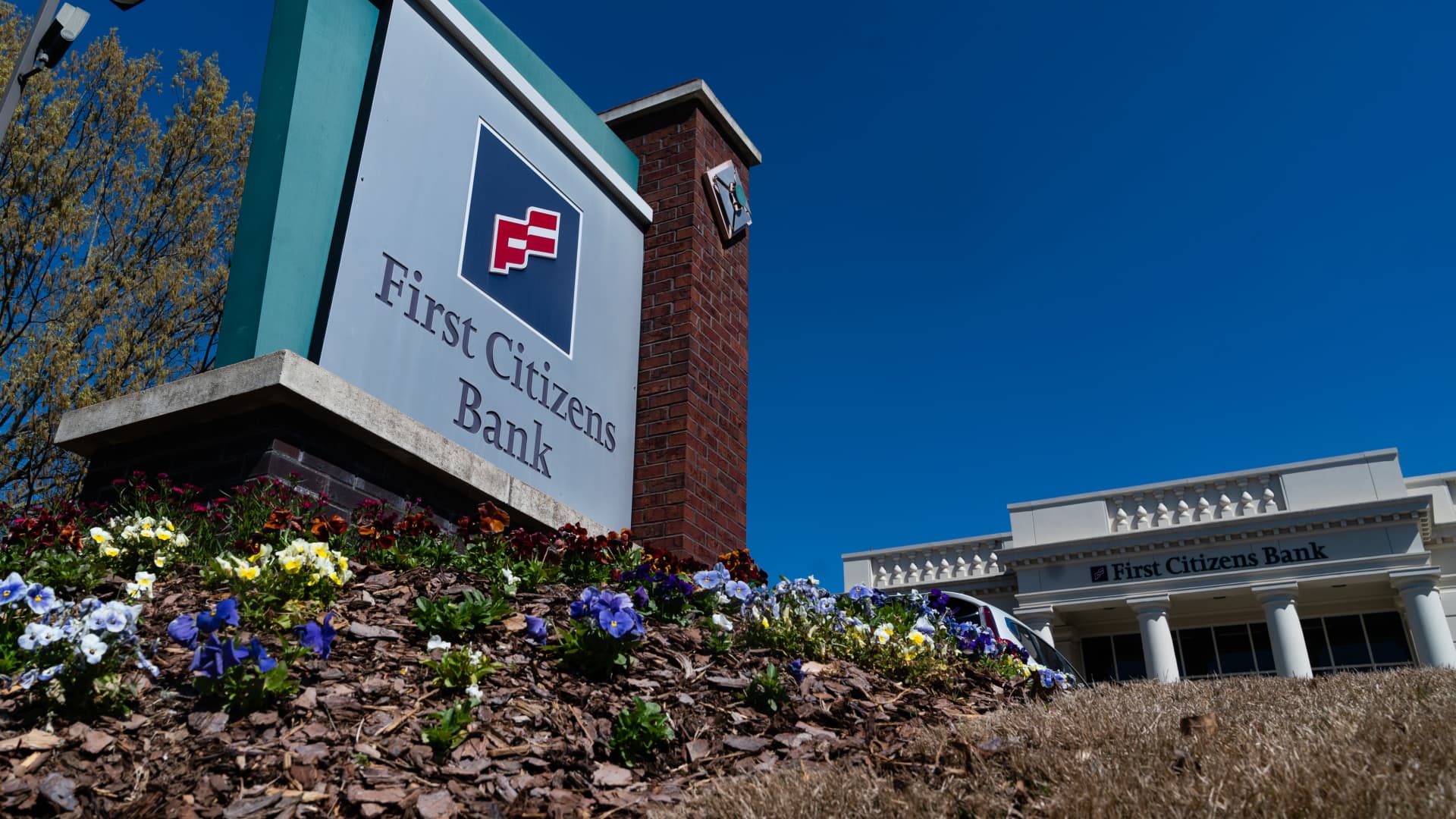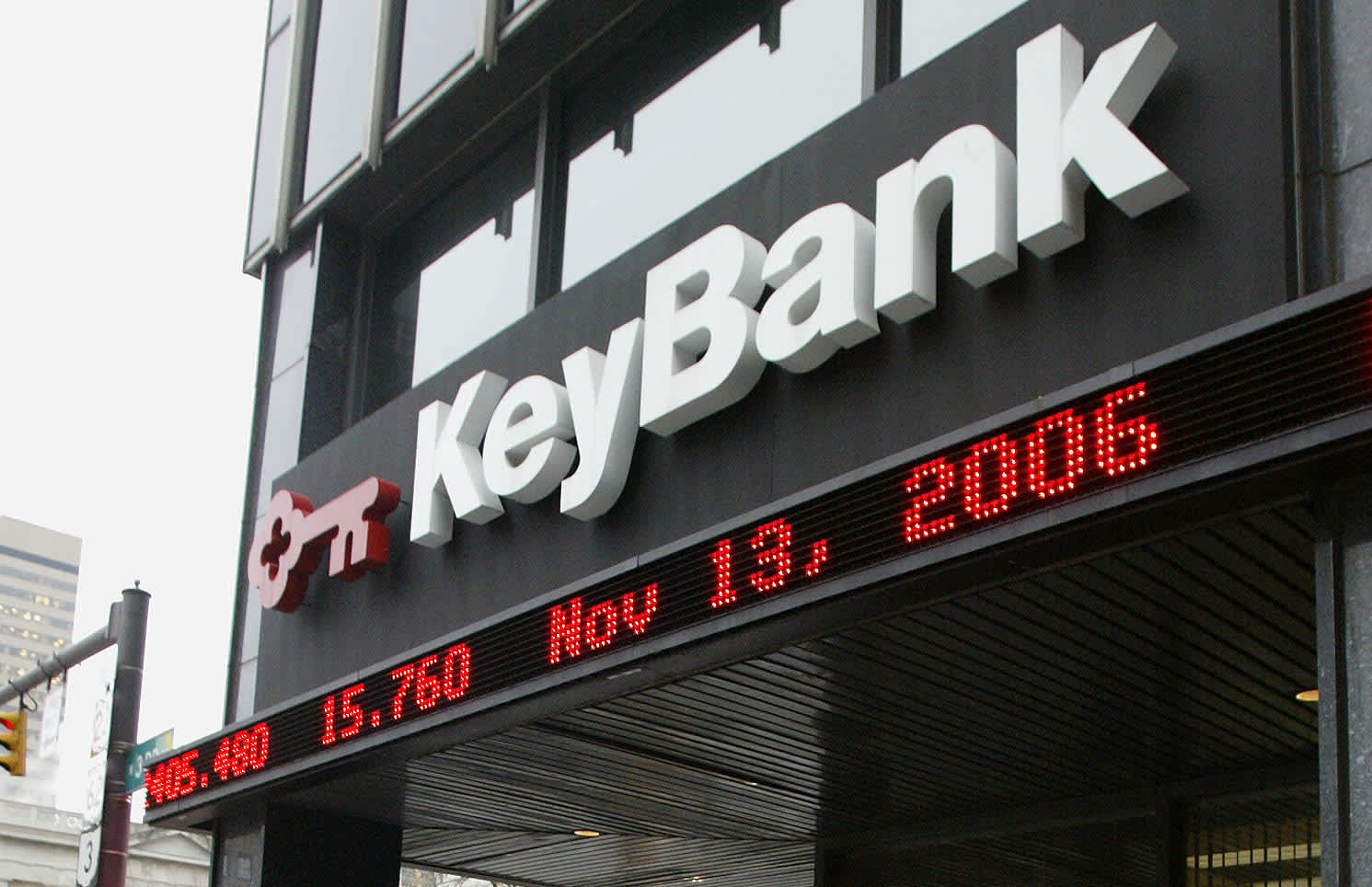The winning bidder in the government’s auction of Silicon Valley Bank’s main assets received several concessions to make the deal happen.
First Citizens BancShares is acquiring $72 billion in SVB assets at a discount of $16.5 billion, or 23%, according to a Sunday release from the Federal Deposit Insurance Corporation. It is gaining all the loans and deposits of SVB, as well as 17 branches, the FDIC said.
related investing news
But even after the deal closes, the FDIC remains on the hook to dispose of about $90 billion in assets which are being kept in receivership.
And the FDIC agreed to an eight-year loss-sharing deal on commercial loans First Citizens is taking over, as well as a $70 billion credit line for “contingent liquidity purposes,” the North Carolina-based bank said Monday.
The FDIC is also giving First Citizens a five-year, $35 billion loan to help finance the deal; in exchange it is getting equity rights in the bank that could be worth up to $500 million.
All told, the SVB failure will cost the FDIC’s Deposit Insurance Fund about $20 billion, the agency said. That makes the SVB failure the costliest in history of the deposit insurance fund, which began operating in 1934. The cost will be borne by higher fees on American banks that enjoy FDIC protection.
Shares of First Citizens shot up 45% in trading Monday.
Underwhelming interest
The deal terms may be explained by tepid interest in SVB assets, according to Mark Williams, a former Federal Reserve examiner who lectures on finance at Boston University.
The government seized SVB on March 10 and later extended the deadline for its assets. Bidding had come down to First Citizens and Valley National Bancorp, Bloomberg reported last week.
“The deal was getting stale,” Williams said. “I think the FDIC realized that the longer this took, the more they’d have to discount it to entice someone.”
The ongoing sales process for another ailing lender may also have cooled interest in SVB assets, according to a person with knowledge of the process. Potential acquirers held off on the SVB auction because they hoped to make a bid on First Republic Bank, which they coveted more, this person said.
In the wake of SVB’s collapse this month, depositors concerned about their uninsured holdings pulled billions of dollars in cash from smaller banks and put them into financial giants including JPMorgan Chase. That sparked a sell-off of regional bank shares, and First Republic was among the hardest hit.
The big leagues
To offset the outflows, JPMorgan and 10 other banks deposited $30 billion in First Republic, but its stock continued to slide, prompting the bank to consider strategic alternatives. On Monday, First Republic shares were rallying along with other bank stocks.
In its release, First Citizens said it has closed more FDIC-brokered bank acquisitions than any other lender since 2009. The bank went from having $109 billion in assets at yearend to more than $200 billion after this transaction, as well as more than 550 branches across 23 states.
The deal is a significant boost to First Citizens’ asset size and deposit base, according to Williams.
“They move into the big leagues with this deal,” he said. “When other banks see fire, they run away. This bank runs towards it.”
Read more: Deposit drain from smaller banks into financial giants like JPMorgan Chase has slowed, sources say



